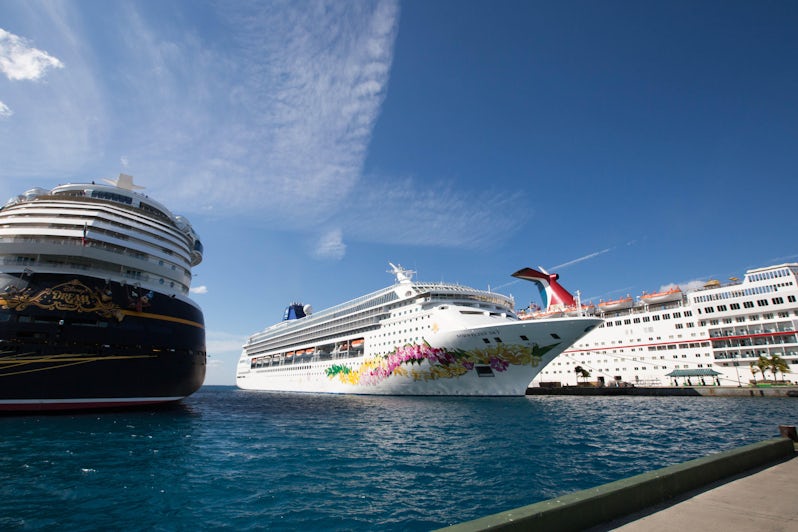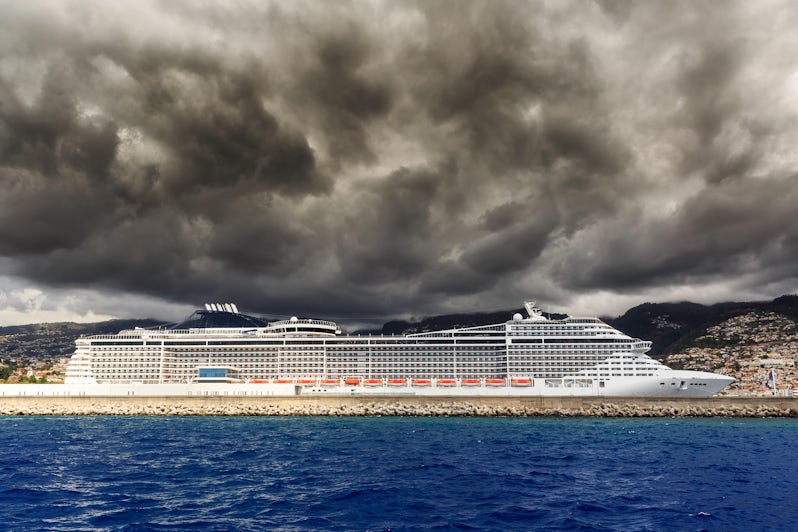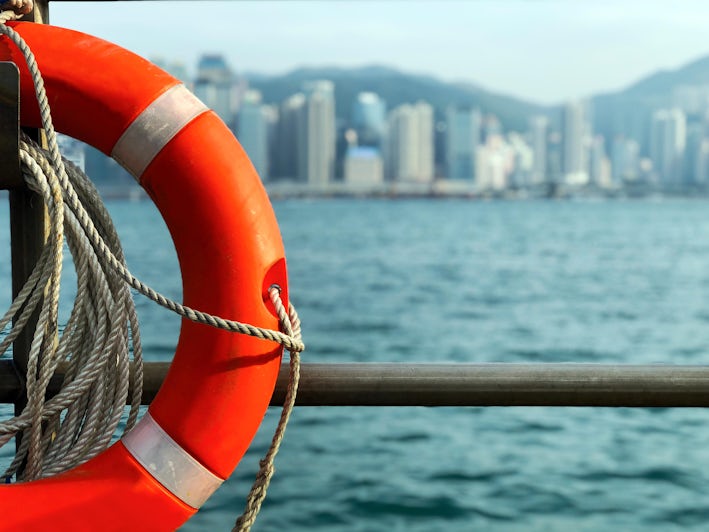
Why You Should Buy 'Cancel for Any Reason' Insurance for Your Cruise


Most standard single-trip travel insurance policies allow you to cancel or alter your plans when certain unforeseen events happen before your departure. These events might include sudden illness or injury affecting you or your travel companion, job loss, severe home damage or the death of a non-traveling family member.
But what if you want the flexibility to cancel your trip for reasons beyond the insurance company's listed one, and still get reimbursed for travel costs? Standard coverage would not be good enough; you'd need to purchase Cancel for Any Reason (CFAR) insurance.
Here's when and why you should buy Cancel for Any Reason insurance for your cruise vacation.
On This Page
Standard Insurance Coverage vs. Cancel for Any Reason Policies

Under standard cancellation coverage, you can't cancel due to travel advisories from the CDC or any other governmental agency without losing your deposits. You can't cancel because the cruise line changed the itinerary, leaving off your dream destination. You can't cancel for fear of terrorism, worries about California wildfires or concerns about volcanic eruptions near your destination.
But a CFAR policy allows you to cancel a cruise and any associated prepaid activities for whatever reason you choose. Here are some instances when these flexible policies are best:
Known or foreseen events: Travel insurance is meant to cover unexpected events. Standard policies you purchased before an event occurs or becomes widely known will remain intact. Your insurance will provide benefits for cancellations, but still only for normally covered reasons, not because you don't like the travel conditions after the event begins. A cancel for any reason plan would let you back out of your travel plans and get some money back because you no longer want to travel under the new conditions.
The burden is on you to educate yourself on things like terrorism, tropical storms and disease outbreaks affecting your intended vacation destination. If you choose to purchase standard coverage after an event becomes "known" -- regardless of whether you knew about the situation or not -- your benefits would be severely limited, making that travel insurance policy almost useless.
In those cases, a CFAR policy may be the only option that allows you to purchase coverage related to your hesitation to travel during the event, while giving you the option of canceling your cruise without losing your prepaid, nonrefundable expenses. Read the fine print of any policy you're considering as restrictions may apply.
Fear: Standard insurance only covers incidents where you are directly affected by an adverse event. The only coverage available for worries and concerns before you travel is a cancel for any reason add-on.
For example, if you are injured, displaced or in any way affected by an act of terrorism, standard coverage will provide benefits as dictated by the terms of your policy. However, you can't use your fear of traveling to a destination that has been recently affected by an attack to cancel under a standard policy.
Only a CFAR policy purchased within the appropriate time constraints (see the section on terms and pricing below) before travel will allow you to cancel because of fear.
Hurricanes and storms: The naming of hurricanes is the key differentiating point for when a storm becomes a foreseen event. You can book a cruise and buy standard insurance coverage for travel during peak cruise hurricane season and be covered for cancellations caused by hurricanes that develop and are named after you purchase your policy. But if you book a cruise and buy a standard policy after a hurricane has been named, your coverage for anything related to that hurricane is nil.
And lest you think you don't have to worry since you don't live near a coast affected by hurricanes, named winter storms are essentially the same; once it has a name, your coverage for it ceases on most standard policies.
So why purchase a CFAR policy for storms if they are covered by standard policies, especially when cruise ships affected by them may cancel or reroute as needed? If the cruise line cancels, a standard policy may cover any expenses you chose to insure at the time of purchase, including transportation to and from your departure port.
But a CFAR upgrade allows you to cancel if you simply don't like an itinerary change offered by the cruise line. It can give you piece of mind, knowing that you are in control of your travel decisions, rather than waiting to see if the cruise line is going to cancel the cruise or delay embarkation.
Example: When hurricane Harvey caused extensive flooding in Houston, cruise lines were making decisions about upcoming cruises from the port at the last minute, leaving many people in limbo about whether their cruise would take place and if they should still board flights to Houston. A CFAR policy would have allowed those people to rearrange their travel plans as needed without waiting on the cruise lines -- possibly even booking a replacement cruise from an alternate port.
Disease outbreaks: As with major weather events, insurance companies will not pay claims on standard policies for cancellations related to a major disease outbreak that is a "known event," even if the CDC or another official agency issues travel warnings. Only a CFAR upgrade allows you to cancel at your discretion.
The caveat with a disease outbreak is that even a policy you purchase with a CFAR add-on may provide limited coverage for trip interruption (think missed ports, extended trips because of delayed docking or even quarantines). That's because these policies only change the terms of canceling your trip before it starts, not events that take place while you're traveling.
A spokesperson for travel insurance comparison shopping site SquareMouth says that during a known event, a cruise line canceling your cruise due to that event may not be a covered reason for canceling the remainder of your travel plans on a standard policy purchased after the event began. And only "certain (standard) policies provide coverage for related delays due to a cruise line's itinerary changes (that might leave you stranded mid-cruise)."
That means that even though standard coverage outside of known events would typically cover all expenses related to a canceled cruise, it likely will not during a widespread disease outbreak. It's one reason why SquareMouth recommends only cancel-for-any-reason policies during extended periods of travel uncertainty.
Changing your mind: In general, a standard travel insurance policy will only reimburse you for trip cancellations that fall under a covered category. You can't simply change your mind about going on a trip, regardless of whether that decision is logical or whimsical. However, even without a known event in place, a CFAR add-on covers you should you decide you don't want to travel after nonrefundable portions of your trip have been paid.
Pricing and Terms of CFAR Insurance

Cancel for any reason insurance is not a standalone policy but an add-on to a standard travel insurance policy. You usually must buy these upgrades within 14 to 21 days of making the first payment (i.e., a deposit) toward your trip. That date marks your intent to pay for the entire trip; if you eventually cancel your plans (for any reason), your claim will consist of only the nonrefundable amounts you have paid.
A few companies do offer cruise-specific policies that allow purchase of CFAR add-ons at any time before final payment.
Other caveats: Cancel for any reason insurance is not available in all states, so check with your insurance provider if you're eligible. Also, while you can get standard travel insurance policies covering only part of your total trip expense, CFAR policies must cover 100 percent of your trip costs.
Example: If you book an expensive cruise but have cheap airfare (or vice versa), standard policies allow you to save a few dollars on the cost of the policy by not including the cost of those bargain plane tickets in your insured amounts. CFAR add-ons, however, require a full accounting of all aspects of the trip.
The extra peace of mind does come with a price tag, and available options typically only pay out 50 to 75 percent of your out-of-pocket expenses if you decide to cancel. Expect to pay as much as 40 percent more on your policy for the privilege.
While that sounds like a lot of money for less than full reimbursement, getting even half of your money back is often better than nothing if you feel the need to cancel an expensive cruise at the last minute to stay home with a sick pet (not a covered reason under standard policies) or, as in the case of Coronavirus, because your age or health status suddenly put you in a high-risk category for succumbing to a disease that did not previously exist. (The average 60-year-old cruiser is healthy, yet they are included in the high-risk category for Coronavirus.)
As with any travel insurance purchase, it is wise to do the math, comparing the increased premium of the CFAR add-on, coupled with the anticipated payout of only a portion of your upfront costs if you need to cancel. Whether it makes sense to purchase the insurance or chance losing trip payments may boil down to your tolerance for risk and/or the cost of your cruise.
Cruise Line Cancellation Policies vs CFAR Insurance
It's easy to assume you may be OK in situations where cruise lines and even airlines offer more lenient trip cancellation policies, but it's safer to know you can control the situation yourself. Plus, if you are paying in advance for car rentals, parking or third-party excursions as part of your cruise vacation, that money is likely to be nonrefundable unless you have purchased an upgrade to cancel for any reason coverage.
Remember that during a known event, you lose most coverage for anything related to the event on standard policies and possibly even on some aspects of coverage under CFAR add-ons.
On both standard policies and those with CFAR upgrades, some insurance providers, like AXA Assistance, will allow you to change your policy dates if your travel provider allows a change of travel dates. It is always worth asking both the cruise lines and the airlines if such a change can be made without fees, followed by a call to your insurance provider to change the policy dates, rather than purchasing a new policy. One consideration though, if you are contemplating such a change, your new coverage dates would mean you won't be covered for any nonrefundable fees (like airline change fees).
What Cancel for Any Reason Insurance Does Not Do
Don't assume that upgrading to cancel for any reason coverage is an upgrade to other coverage in your policy. It is strictly coverage allowing you to cancel your entire trip 48 hours before it begins. If you don't cancel the trip, the rest of the coverage remains the same and may even be jeopardized by the "foreseeable event" you were worried about in the first place.
We studied the position statements on Coronavirus from the providers offered on SquareMouth and found numerous gaps in coverage related to the virus.
For example, April Travel Protection states that medical coverage for a diagnosis of COVID-19 (the illness caused by the Coronavirus) during your travels remains intact, but because it is a foreseeable event, expenses related to being quarantined will not be covered. Another provider, Seven Corners, states that quarantines and emergency evacuation coverage may remain intact, but that evacuation, "may be limited due to travel and other restrictions."
It is important to note that many of these position statements remain somewhat vague in a rapidly changing situation, often using the word "may" in respect to coverage details. As with all insurance purchases, it is advisable to read the fine print in the policy documents and call either the provider or the seller with any questions or concerns you may have.
Still, a cancel for any reason upgrade arms you with the knowledge that you can cancel your plans entirely and recoup a portion of your upfront expenses. The extra expense might be worth it for your peace of mind.